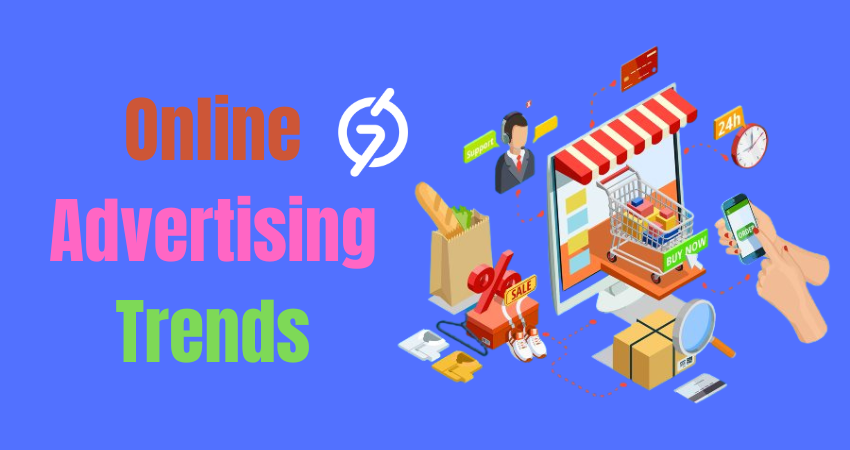
Online Advertising: Types, Tips & Tricks
Public Group
Public Group
Active a year ago
Online Advertising: Types, Tips & Trick
In today’s digital age, online advertising has become... View more
Public Group
Group Description
Online Advertising: Types, Tips & Trick
In today’s digital age, online advertising has become a cornerstone of marketing strategies for businesses of all sizes. Its importance cannot be overstated, as it allows companies to reach a global audience, target specific demographics, and measure the effectiveness of their campaigns in real-time.
The journey of online advertising began in the early 1990s with the advent of the internet. Since then, it has evolved significantly, incorporating various forms and techniques to engage users effectively.
Boost Your Online Presence with 7Search PPC
Are you looking to drive more traffic to your website and increase conversions? Look no further! With 7Search PPC, you can harness the power of precision-targeted ads to reach your ideal audience and achieve your marketing goals.
Why Choose 7Search PPC?
- Highly Targeted Ads: Reach users who are actively searching for products and services like yours.
- Cost-Effective Solutions: Maximize your ROI with our budget-friendly options and flexible bidding strategies.
- Real-Time Analytics: Track your ad performance and make data-driven decisions with our comprehensive reporting tools.
- Dedicated Support: Get expert assistance and optimize your campaigns with the help of our knowledgeable support team.
Kind of Online Advertising
Search Engine Advertising
Search engine advertising is one of the most popular and effective forms of online advertising. It involves placing ads on search engine results pages (SERPs) to attract potential customers searching for relevant keywords.
- Google Ads: As the largest search engine, Google offers a powerful advertising platform that allows businesses to bid on keywords and display ads at the top of SERPs.
- Bing Ads: Bing, Microsoft’s search engine, also provides an advertising platform similar to Google Ads, reaching a different segment of internet users.
Social Media Advertising
Social media platforms have become essential channels for online advertising, offering highly targeted options to reach specific audiences.
- Facebook Ads: With its vast user base, Facebook allows advertisers to target users based on demographics, interests, and behaviors.
- Instagram Ads: Owned by Facebook, Instagram offers visually engaging ad formats such as photo ads, video ads, and carousel ads.
- LinkedIn Ads: Ideal for B2B marketing, LinkedIn ads enable businesses to target professionals based on job titles, industries, and skills.
Display Advertising
Display advertising involves placing visual ads on websites, apps, and social media platforms to attract users’ attention.
- Banner Ads: These are rectangular image or text ads that appear at the top, bottom, or sides of a web page.
- Pop-Up Ads: These ads appear in a new window or tab, grabbing users’ attention but often considered intrusive.
Video Advertising
Video ads are highly engaging and can be placed on video-sharing platforms or within streaming services.
- YouTube Ads: As the largest video platform, YouTube offers various ad formats, including skippable and non-skippable ads, bumper ads, and sponsored cards.
- Streaming Service Ads: Ads on platforms like Hulu and Spotify allow businesses to reach users while they consume content.
Native Advertising
Native ads blend seamlessly with the content on a website or platform, providing a less intrusive experience.
- Sponsored Content: These are articles or videos created to promote a product or service subtly.
- In-Feed Ads: Ads that appear in the feed of a social media platform, matching the format of organic content.
Affiliate Marketing
Affiliate marketing involves partnering with other websites or influencers to promote a product or service, earning a commission for each sale made through their referral.
- How it Works: Affiliates promote products through unique links, earning a commission on sales generated through these links.
- Key Benefits: Cost-effective and performance-based, making it attractive for businesses with limited budgets.
Email Marketing
Email marketing remains a powerful tool for reaching and engaging customers directly.
- Newsletters: Regularly sent emails that provide updates, news, and promotional content to subscribers.
- Promotional Emails: Targeted emails designed to promote a specific product, service, or offer.
Influencer Marketing
Influencer marketing leverages the popularity and reach of influencers to promote products or services.
- How it Works: Brands collaborate with influencers to create content that promotes their products.
- Key Benefits: High engagement rates and the ability to reach niche audiences.
Hints for Effective Online Advertising
Understanding Your Audience
Knowing your audience is crucial for creating relevant and compelling ads. Conduct thorough research to understand their preferences, behaviors, and pain points.
Setting Clear Goals
Define clear, measurable goals for your advertising campaigns
. Whether it’s increasing brand awareness, driving traffic, or boosting sales, having specific objectives will guide your strategy.
Choosing the Right Platforms
Select the platforms that best align with your target audience and business goals. Each platform has its unique strengths, so it’s essential to choose wisely.
Creating Compelling Ad Copy
Crafting engaging ad copy is key to capturing attention and driving action. Use persuasive language, highlight benefits, and include a clear call to action.
Using High-Quality Visuals
Visuals play a significant role in online advertising. Invest in high-quality images and videos that resonate with your audience and enhance your message.
Monitoring and Analyzing Performance
Regularly monitor your ad campaigns and analyze their performance. Use analytics tools to track key metrics and make data-driven decisions to optimize your strategy.
Advanced Strategies for Online Advertising
A/B Testing
A/B testing involves creating multiple versions of an ad and comparing their performance to determine which one is more effective. This helps refine your ads and improve their effectiveness.
Retargeting
Retargeting allows you to show ads to users who have previously visited your website but didn’t convert. This keeps your brand top of mind and encourages them to return and complete their purchase.
Utilizing AI and Automation
Leverage AI and automation tools to streamline your advertising efforts. These tools can optimize ad placement, bidding, and targeting, saving you time and resources.
Leveraging User-Generated Content
User-generated content, such as reviews and testimonials, can enhance your ads’ credibility and appeal. Encourage satisfied customers to share their experiences and incorporate this content into your ads.
Maximizing Mobile Advertising
With the increasing use of mobile devices, optimizing your ads for mobile is essential. Ensure your ads are mobile-friendly and consider using mobile-specific ad formats.
Common Mistakes to Avoid
Ignoring Analytics
Failing to monitor and analyze your ad performance can lead to missed opportunities for improvement. Regularly review your analytics to identify trends and areas for optimization.
Overlooking Mobile Users
Neglecting to optimize your ads for mobile devices can result in a poor user experience and lost conversions. Always consider the mobile user experience in your advertising strategy.
Neglecting Ad Frequency
Showing the same ad too frequently can lead to ad fatigue and decreased effectiveness. Monitor your ad frequency and adjust as needed to keep your audience engaged.
Not Testing Different Ad Formats
Experimenting with different ad formats can help you discover what works best for your audience. Don’t be afraid to try new formats and iterate based on performance data.
Conclusion
Online advertising offers immense opportunities for businesses to reach and engage their target audiences. By understanding the different types of online advertising, implementing effective strategies, and avoiding common mistakes, you can maximize the impact of your campaigns and achieve your marketing goals.
FAQs
What is the most effective type of online advertising?
Ans. The effectiveness of online advertising depends on your business goals and target audience. However, search engine advertising and social media advertising are generally considered highly effective.
How much should I budget for online advertising?
Ans. Your budget should align with your business goals and the platforms you choose. Start with a small budget, monitor performance, and adjust as needed.
How do I measure the success of my online ads?
Ans. Success can be measured using various metrics, including click-through rates (CTR

